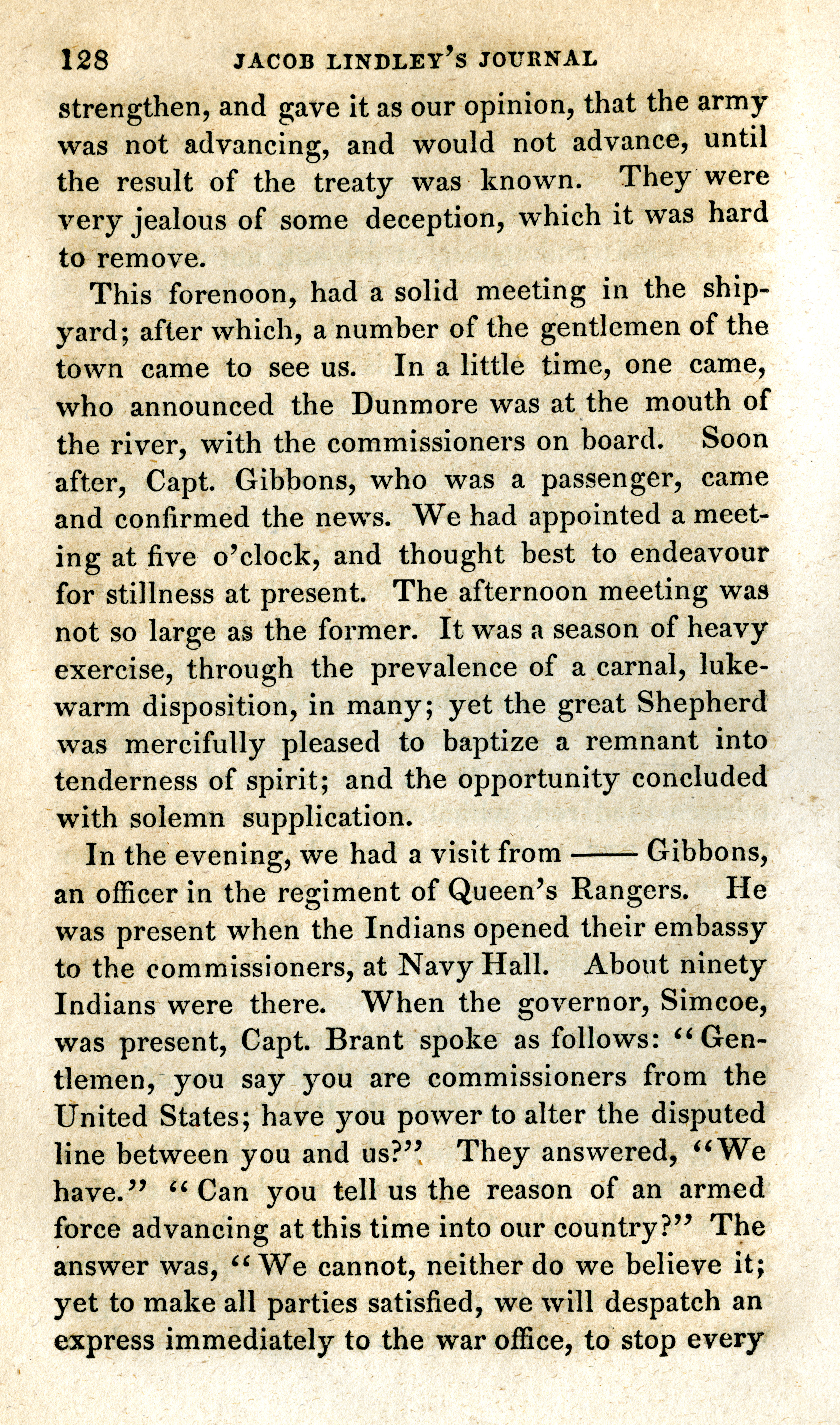strengthen, and gave it as our opinion, that the army
was not advancing,
and would not advance, until
the result of the treaty was known. They
were
very jealous of some deception, which it was hard
to remove.
This forenoon, had a solid meeting in the ship-
yard; after which, a number
of the gentlemen of the
town came to see us. In a little time, one
came,
who announced the Dunmore was at the mouth of
the river, with the
commissioners on board. Soon
after, Capt.
Gibbons, who was a passenger, came
and confirmed the news. We
had appointed a meet-
ing at five o'clock, and thought best to
endeavour
for stillness at present. The afternoon meeting was
not so
large as the former. It was a season of heavy
exercise, through the
prevalence of a carnal, luke-
warm disposition, in many; yet the great
Shepherd
was mercifully pleased to baptize a remnant into
tenderness of
spirit; and the opportunity concluded
with solemn supplication.
In the evening, we had a visit from ____
Gibbons,
an officer in the regiment of Queen's Rangers.
He
was present when the Indians opened their embassy
to the
commissioners, at Navy Hall. About
ninety
Indians were there. When the governor, Simcoe,
was present, Capt.
Brant spoke as follows: “Gen-
tlemen, you say you are
commissioners from the
United States; have you power to alter the
disputed
line between you and us?" They answered, "We
have." "Can you
tell us the reason of an armed
force advancing at this time into our
country?" The
answer was, "We cannot, neither do we believe it;
yet to
make all parties satisfied, we will despatch an
express immediately to the
war office, to stop every

